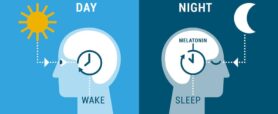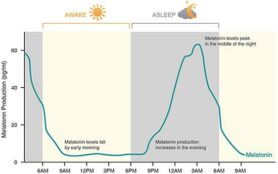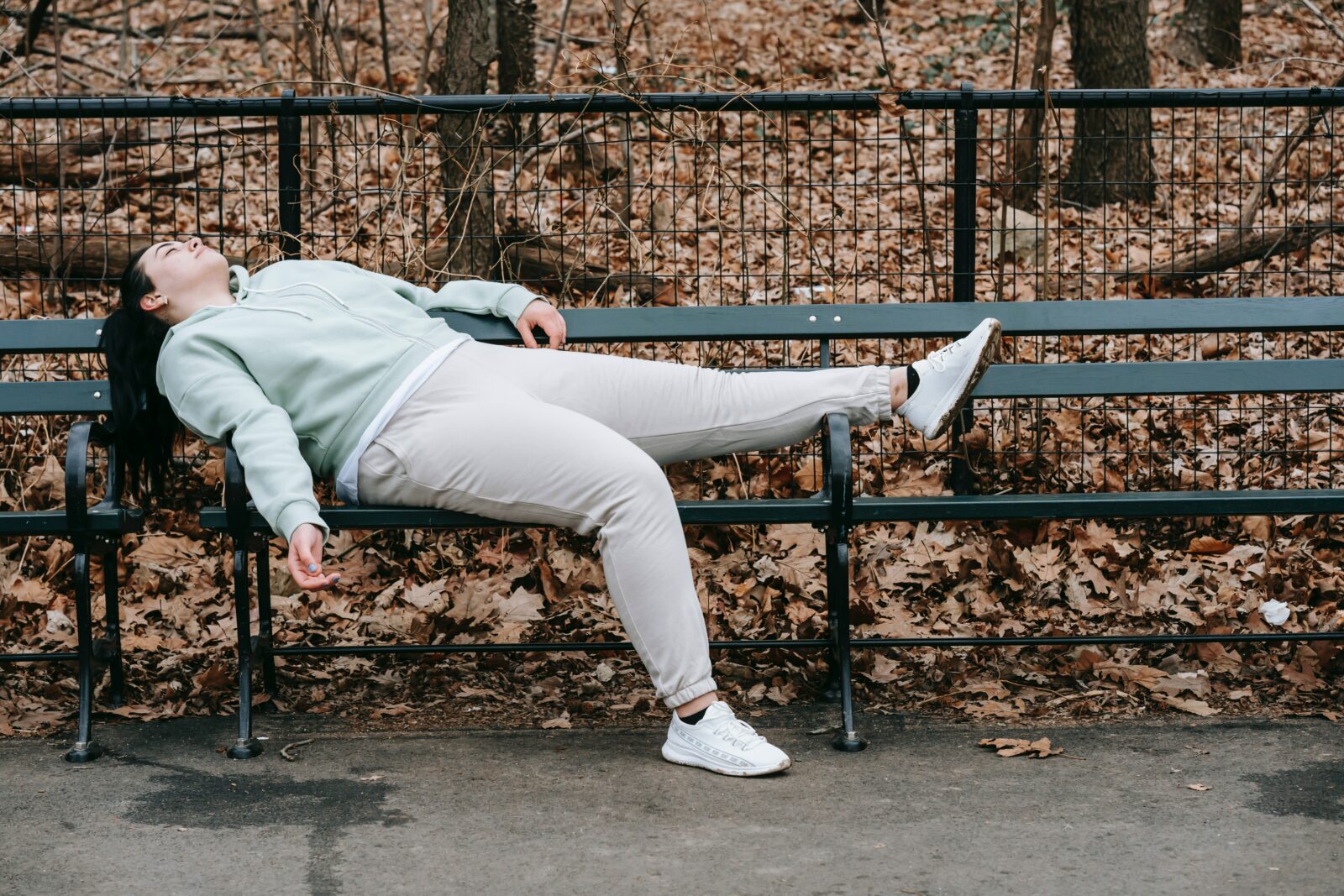Sleep
Are your melatonin supplements ruining your sleep schedule?
You’ve probably heard or are even using melatonin supplements to help you sleep at night, after all they’re readily available in the apothecary so they must be safe right? Well yes but some more recent studies have shown that we might be asking the wrong question. More relevant questions have recently surfaced. Do we even need melatonin supplements or can we solve our problems naturally? And perhaps most important of all, might your melatonin supplements actually have a bad influence on your sleeping habits.
To discover this we’ll shortly dive into what melatonin is followed by why supplements might be ruining your sleep schedule.

Our day to day rhythms as humans are decided by our circadian rhythm, or as it is more popularly called, our biological clocks. This ‘clock’, tells our body the time of day, and therefore if we should feel hungry if we should feel active or sleepy, and much more. This
rhythm is influenced by many things, but two of its most important factors are light and darkness. Exposure to light will make us feel energized and awake whereas darkness will make us feel drowsy and sleepy. Everybody has their own unique biological clock, this is what causes people to be ‘morning’ – or ‘evening’ people. These feelings of being awake and feeling sleepy are largely caused by a hormone called melatonin.
What’s in the pills?
Melatonin is a hormone. Melatonin is comparable to another possibly better known hormone adrenaline however these 2 have opposite effects, adrenaline makes you feel extra awake, tightens your muscles, etc. as a response to stress or excitement. Melatonin is the opposite to that, Melatonin is a hormone that relaxes your body, it slows digestion, makes you feel sleepy and relaxed, etcetera. Your body produces little amounts of melatonin throughout the day, but in dim light or darkness, it starts producing more and more melatonin until you pass a certain threshold level after which you start feeling sleepy.
Many people have trouble falling asleep at certain times due to their natural circadian rhythm. Melatonin supplements have emerged as a way for them to manipulate their biological clocks so they can influence or shift their sleep schedules, and fall asleep, at earlier times.

Using melatonin as a medicine?
The idea to use melatonin supplements as a kind of medication has been around since the 1990’s and has become increasingly popular in recent years. People try to “fool” their biological clock into falling asleep at a specific time. It seems easy enough but actually it is quite complex.
The Biological clock is unique for each person. But it can change, you yourself probably have different sleeping preferences now compare to when you where a teenager. Where it becomes complicated is in how much the clock can change, for some people moving their biological clock 2 hours ahead is no problem, for others, this is a bigger challenge or nearly impossible without help from melatonin supplements or professional assistance like a doctor or sleep coach. This also effects how people use melatonin supplements. The people that can easily shift their biological clock, could do without the supplements or use it for a short time to help them fall into the new rhythm. The people with more difficulty changing their sleep rhythm might need to use melatonin for a longer amount of time, or perhaps even the rest of their lives.
Another personal factor to your biological clock which should be taken into consideration is a very technical term called dim light melatonin onset. This means that basically when we are exposed to dim-light our melatonin production increases, and at some point the melatonin level reaches a threshold at which point people start feeling sleepy. About 1 or 2 hours later they will be able to fall asleep. But when exactly that threshold is reached differs for everyone. And therefore it is hard to figure out when it is the ideal time to take melatonin supplements. Ideally one takes it about 2-3 hours before this threshold. So, if a person reaches this threshold by 9 P.M. he or she should take the melatonin around 6 P.M. However, no home measure kit exists to determine what a person’s threshold moment is. This can only be done through professional help.
Besides the personal aspect of melatonin supplements, another important factor is the melatonin concentration of the supplements. In a clinical and scientific setting, the melatonin supplements are administered in much lower doses than is usually in apothecary-based melatonin a standard clinical dose would be 0.3 mg whereas apothecaries and drugstores will have around 3 mg as lowest concentrations which is obviously much higher. In an interview with PsyQ researcher Emma van Andel, she explained that a higher melatonin dose won’t help people fall asleep faster. It might even work counterproductive, as the melatonin stays in your body longer, and that could make you feel extra sleepy the day after. This could make you less active and due to this daytime drowsiness have a bad influence on your sleep schedule, especially when used long term.
What other choices do I have?
At the end of the day, you still need to get up at 7 to work from 9 to 5. So you need to go to bed at a decent time, and hope sleep will soon come. If it doesn’t, a melatonin supplement might help. But if you don’t like taking ,medication, other solutions may be available. A simple example would be a lower dose of melatonin, or perhaps more interesting even bright light therapy, basically exposing yourself to bright light when you wake up to kick your system into gear either by using a specialized lamp or daylight. This reduces your melatonin production to make yourself more active without any chance for side effects.
If you still decide you want to use melatonin that’s an option too, however its strongly recommended to first consult a physician on dosage and timing for the best effects
Lastly using melatonin and/or bright light therapy can be used just to get yourself in that new rhythm but to stay in that rhythm you need to adjust your behavior to that rhythm as well. No bright light, caffeine, or a high-stakes workout before going to bed, make sure you get some exercise throughout your day and plenty of daylight during the day. In the words of expert Emma van Andel “behavior is just as, if not more important than melatonin and bright light for sleep patterns.”
References.
Interview with Emma van Andel
http://www.ncbi.nlm.nih.gov/pubmed/18…
http://www.livescience.com/13123-circ…
http://www.sleepfoundation.org/articl…
http://www.aasmnet.org/resources/fact…
http://www.helpguide.org/harvard/slee…
http://news.uci.edu/press-releases/ci…
http://blogs.nature.com/news/2012/03/…
http://news.yale.edu/2013/06/17/rhyth…
http://online.wsj.com/news/articles/S…
Images:
Melatonin supplement bottle- vidrioperfril.com
Melatonin graph – https://www.eurekalert.org/news-releases/797591
Day/night image – https://sleepdynamics.com/understanding-circadian-rhythm/

